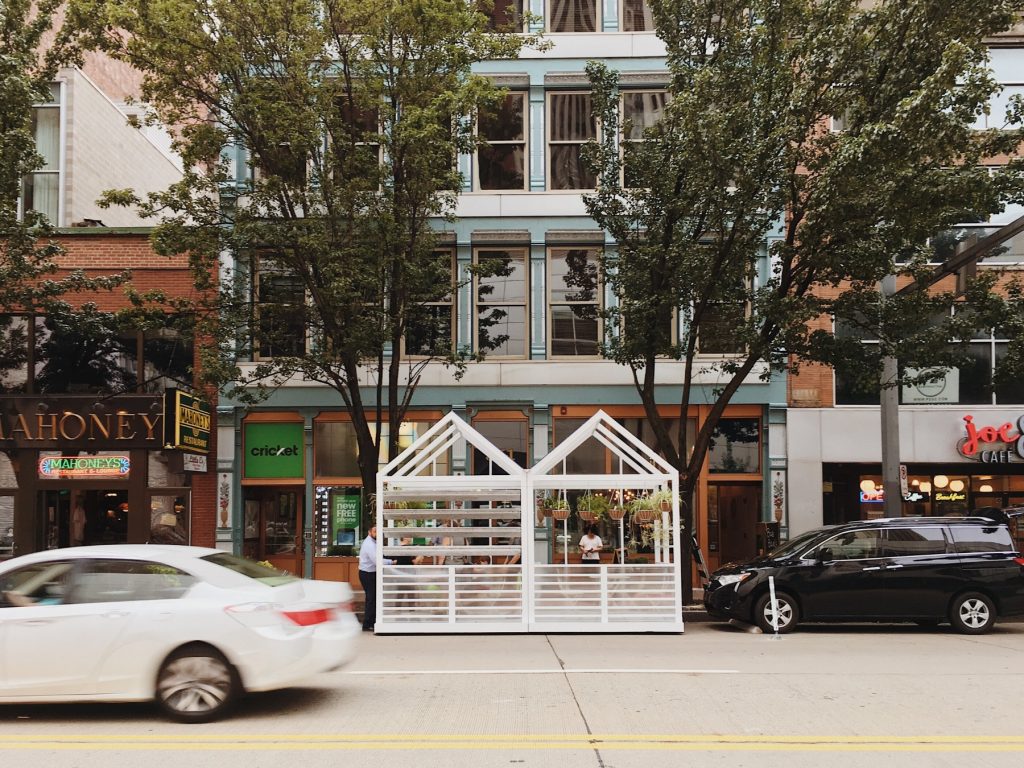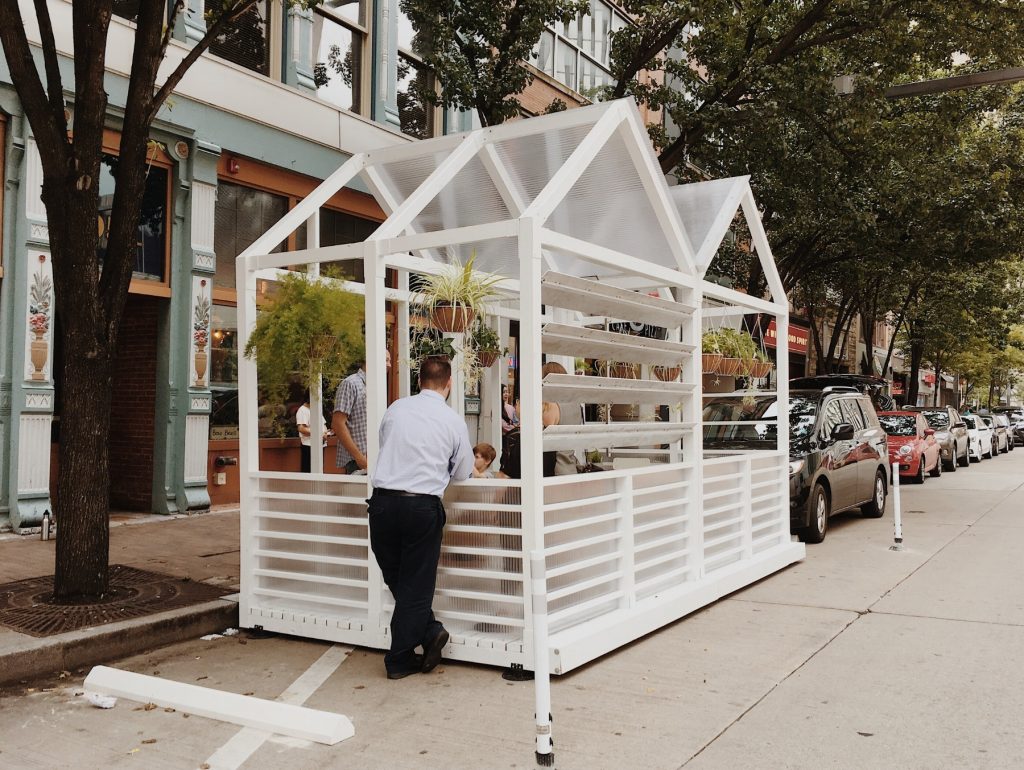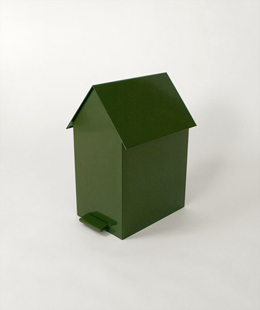Rethinking Pittsburgh’s Public Space with Bae Bae’s Greenhouse
With a mission to give back to the community, an eco-minded space for locals and visitors alike

Nestled into the tree-lined 900 block of Liberty Ave in downtown Pittsburgh, there’s a casual Korean-inspired restaurant called Bae Bae’s Kitchen. Its family-run vibe and consistently fresh, tasty, food became an instant hit. But it’s their community spirit that also attracts locals and visitors. They encourage customers to donate to charitable funds in their name while they dine. (With their totals topping $1,000 most months since opening). This summer, during Pittsburgh’s Pride celebration, the Bae Bae’s team set up shop on the sidewalk out front of their restaurant to cater to hungry paraders.
Liberty Avenue—one of the many city-length streets that run from the outskirts of Pittsburgh back into its core—is frequently subject to closings due to gallery crawls, parades, concerts, construction projects, and more.
As part of a project to rethink public spaces—and maybe reconsider solutions to the aformentioned issues—the city has introduced the Spark Program. With the goal of balancing pedestrians, bus passengers, bicyclists, and automobiles, the city is installing small public areas (the size of two parallel parked cars) that jut out into the street’s parking lane with the purpose of being a seating or gathering area that frees up the narrow sidewalks.

With plans of opening similar spaces across the city, officials poached a number of spots for pilot runs. Bae Bae’s Kitchen was one of them. The eatery took advantage of the opportunity to extend their mission and outfitted their “Spark” as an urban greenhouse—one that will collect and track rainwater to supply its plants with, measure the air quality around it, and document its findings in real-time.
Bae Bae’s Greenhouse was designed by Pittsburgh-based landscape architecture firm Merritt Chase—known for their innovative reuse of public-but-perceived-otherwise space projects like White Space Cambridge and Take a Seat. Its construction was funded by the city’s Downtown Partnership, and the installation of its rain- and air-sensors was managed by Microsoft’s Civic Technology Engagement Group.

Bae Bae’s owner, Edward Lai, says the Spark program had “been on the Department of Mobility and Infrastructure’s shelf building dust.” But with the help of Kristin Saunders, Pittsburgh’s Principal Transportation Planner, the program was fast tracked for a 2018 launch. Lai explains that the Pittsburgh Downtown Partnership reached out to them to gauge their interest in participating–the office mentioned that Nina Chase, founder of Merritt Chase, and a frequenter of Bae Bae’s, expressed a desire to work with the team in designing their Spark.
“When we first started working with Nina, we explained our ‘greenhouse’ idea; to make something that was functional on its own within the environment,” Lai says. “I mentioned the rain barrel, and being self-watering, and that’s when Nina got Microsoft involved [to install the sensors].”

The sensors will track the rainwater that the barrel collects and the air quality immediately surrounding the Greenhouse, which resides on the curb of one of downtown’s busiest streets.
“I am someone who feels like all things happen for a reason,” Lai explains. “We’re eco-friendly, sustainable, we use organic materials. We think this is going to be a true extension of our mission, of our philosophy. We really feel we’re not taking anything away from the city, from its community; but that we’re giving back, to give this area value again because I know the city has really had its microscope on it.”
Bae Bae’s Greenhouse will tweet out its findings until it closes for the season in November. But for Lai, despite a formal announcement from the city, he thinks it’s safe to assume that the pilot project will return on a broader, more permanent scale next year.
Images courtesy of Merritt Chase













What are your thoughts?